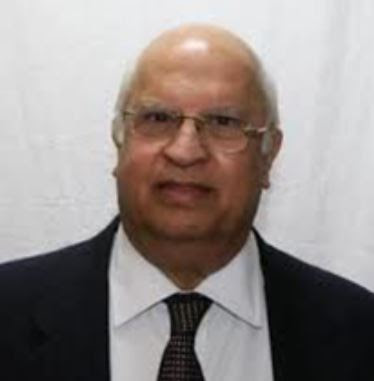|
Dr Hemant Kanakia, Founder of the Maker Bhavan Foundation:
 Technology
and science have come together to aid some of the pressing concerns on
water that plague many parts of the world today and many water-related
industries have emerged all over. All of these are creating new
opportunities for entrepreneurs and also jobs for engineering talent.
Our vision and goal is to encourage India’s emerging engineering talent
to focus on solving societal problems with innovations that make a
difference. Maker Bhavan Foundation, with its strong focus on student
innovations, while WIN Foundation has strong domain focus and
partnerships in water and sanitation. Their collaboration for this
competition enables comprehensive support for student innovators,
during and after the competition. Technology
and science have come together to aid some of the pressing concerns on
water that plague many parts of the world today and many water-related
industries have emerged all over. All of these are creating new
opportunities for entrepreneurs and also jobs for engineering talent.
Our vision and goal is to encourage India’s emerging engineering talent
to focus on solving societal problems with innovations that make a
difference. Maker Bhavan Foundation, with its strong focus on student
innovations, while WIN Foundation has strong domain focus and
partnerships in water and sanitation. Their collaboration for this
competition enables comprehensive support for student innovators,
during and after the competition.
Shri Ruyintan Mehta, President, WIN Foundation
“Innovations in Water and Sanitation domain are required to enable
water availability and sanitation for underserved communities in a
sustainable manner, and we are happy to partner with Maker Bhavan Foundation for the Vishwakarma Innovation Prize, which
has, in turn, brought forth many highly promising innovations in this
domain. WIN Foundation and its partners support such innovations to
trialed, refined and validated at grass roots by communities across
India, and also train communities to understand and adopt such
innovations.”
Maker Bhavan Foundation for the Vishwakarma Innovation Prize, which
has, in turn, brought forth many highly promising innovations in this
domain. WIN Foundation and its partners support such innovations to
trialed, refined and validated at grass roots by communities across
India, and also train communities to understand and adopt such
innovations.”
|
|
|
|
The National Bio Entrepreneurship Competition 2022 (NBEC)
|
|
WIN Foundation is again a category partner with C-CAMP, for The National Bio Entrepreneurship Competition 2022, for the domains of (i) Water and Sanitation and (ii) Maternal and Child Nutrition. WIN Foundation has been a category partner in NBEC for the last 3 years.
NBEC is organized by the Centre for Cellular and Molecular Platforms (C-CAMP),
and is sponsored by the Department of Biotechnology, Government of
India, along with several reputed partners. It has emerged as the
premier national talent competition to identify and reward some of the
most promising deep tech ideas in all domains of the Life Sciences.
NBEC-2022 brings with it INR 16 Crore in cash prizes
and investment opportunities for start-ups and individuals and up to
INR 10 Lakh cash prizes for Student Teams. What is more, winners will
be mentored by leading industry and investment experts. And shortlisted
applicants will attend a virtual 2-day engaging Boot Camp led by
experts. Participation in NBEC also brings excellent visibility at
national level for the innovation and innovators.
In addition to above, WIN Foundation offers the opportunity to
participate in WIN Innovative products market validation scheme to
participants and winners.
NBEC is open to student teams, researcher, innovator, aspiring
entrepreneur, start-up, a small or medium biotech company or someone
with a bright idea in any discipline of the Life Sciences, here is your
chance to win! A poster with detailed information is attached
with this email.
To know more, visit : http://www.nationalbioentrepreneurship.in
|
|
|
Training of Trainers on Maternal and Child nutrition for Health Workers
|
|
|
Amdavad Municipal Corporation (AMC) - Health Department organised an event to celebrate World Breastfeeding Week at Ahmedabad. On this special occasion AMC,Health department and Ahmedabad Mayor Shri Kiritbhai Parmar, recognised and felicitated WIN Foundation for its support and contribution in the Mother and Child Nutrition efforts.
This was in recognition of support extended by WIN Foundation extended to AMC health Department's week
long mega training, conducted by D. Rupal Dalal, SMDT, from 2nd May'22
to 7th May'22 to 105 health workers of Ahmedabad from 7 zones in two
batches. the selective 105 health workers who underwent this 3
days rigorous training are now the ambassadors of Ahmedabad and
actively counsel mothers and collect data to track the health of mother
and infant children.
WIN
Foundation has earlier supported this training for over 700 health
workers and also supported development of Spoken Tutorial for Health
which are used during training as well as later by filed health
workers. This comprehensive Training is based on “First 1000 days – Maternal & Child Nutrition” for Health Workers over
3 days on technical and counseling skills on Maternal, Infant &
Young Child Nutrition (primarily upto age 2), including breast feeding
and supplemntary nutrition, to enable health workers to then counsel
mothers.
For More details visit our social media page post links :
|
|
|
Ideal Village Conference, Nov 11-13th at BHU, Varanasi:
|
|
Our sister foundation, WHEELS Global Foundation, together with Stanford
Ideal Village Project, Pan IIT-Alumni, CII, FIPA and Banaras Hindu
University (Institute of Management Studies), is organizing Ideal
Village Conference 2022, 7with the theme "Rural Transformation for Sustainable Growth", at BHU, Varanasi on Nov 11 to 13th, 2022
It has 6 tracks with distinguished speakers. For more details and registration: click here: https://idealvillageconference.com/index.html
|
|
|
310-312, Research Park, Academic Block 9, IITG, Gandhinagar 382355, Gujarat, INDIA
8, Glenview Drive, Warren, NJ 07059, USA
|
|
|
If you wish to opt out of receiving this quarterly WIN Newsletter, please reply to this email mentioning "unsubscribe" in the subject line. | | | |
| | |